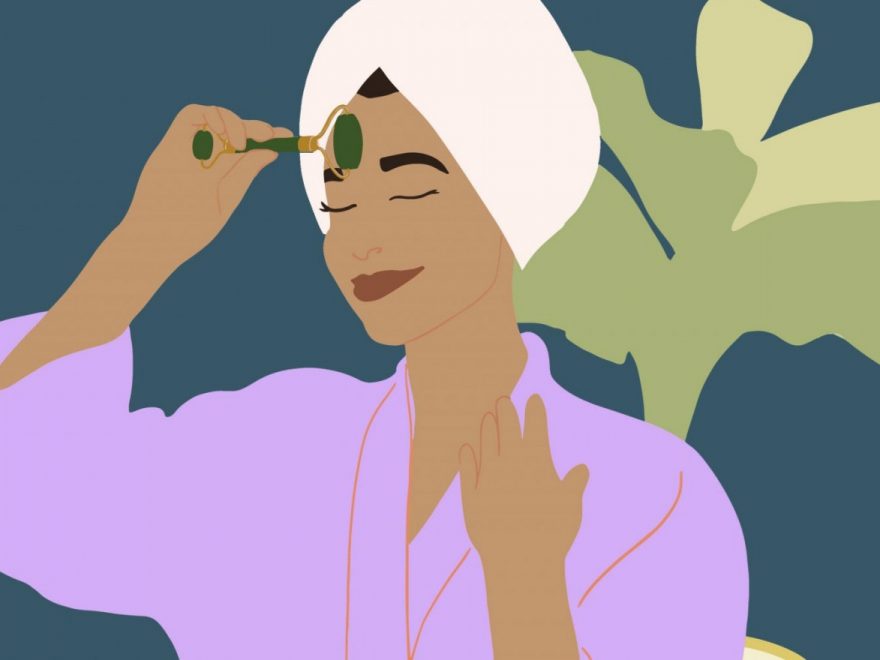Just because you’re not working or working out, it doesn’t mean you’re actually resting and recharging.
Do you feel well-rested? Probably not.
In our hurried, distracted, overwhelmingly busy lives, the idea of being at 100% energy, free of yawns and afternoon slumps, sounds like a pipe dream. Even on those rare occasions when we actually get a decent night’s kip, a bone-deep weariness still hangs around like a bad smell.
Why? It might be because beyond sleep, you’re not getting enough true rest.
What is true rest?
“Relaxation is critical to healthy ageing, as well as to good mental health,” Dr Elissa Epel, a professor in the department of psychiatry at the University of California, San Francisco, and the author of The Seven-Day Stress Prescription, tells Stylist. “Often, we are not fully relaxed when we are doing nothing; we are holding onto stress.
“Deep rest is when you get to unplug and recover from the stress of the day.But further, it is when you spend time in a deeply relaxed receptive state, so that you are actually giving your body a chance for restorative activity. At the cellular level, that means ‘housekeeping’ activities that keep a cell healthy. Our cells need downtime to clean up junk and repair broken parts.
“True rest is essential for being able to tackle high-stress situations in the future.True rest is needed to prevent burnout. Without true rest, we will deplete our batteries and be running on empty.”
“True rest is not lying in bed scrolling your phone,” Epel explains. “True rest is not a working vacation. When we are engaged in non-stressful activities, neutral activities, that doesn’t mean we are relaxed. We tend to go through our day in this state, a yellow mind state, which is a busy mind state, unless we are purposefully doing things to relax.”
How to get true rest
OK, so we know true rest is important for us. How can we start to get it?
Set proper boundaries
Properly cordon off time for rest. That means giving it the same importance and protection from interruption as other activities such as work. Schedule rest in. Turn off your notifications and put your phone out of your sight.
“We need strong boundaries or we will be pinged, called or our own ruminative mind will lead us to the yellow mind state,” Dr Epel says.
Remember that rest is essential
In our productivity-focused culture, it can feel tricky to ease into doing nothing. Remind yourself that rest isn’t indulgent, it’s an absolute necessity. You can’t pour from an empty cup.
You may also like
Why worrying about stress is making it worse – and how to stop it
Engage your body and mind
Rest your body and your mind. A massage is a great place to start, or perhaps a gentle stretching session. Any restful, relaxing activity that feels good physically and mentally will do the trick.
Find out what brings you real relaxation
“True reset happens when we do mind-body activities or anything deeply relaxing,” Epel explains. “Massage or immersion in nature are also forms of true relaxation and, depending on your mind’s activity, can be deep rest (blue mind states).”
What ticks that deep relaxation box isn’t going to be the same for everyone, so play around and see what works for you. But be honest with yourself – is scrolling TikTok or watching TV really relaxing you? Or would you be better off reading a book, doing something crafty or going for a walk outside?
Check in with yourself
On that note, while you’re working out what relaxes you, make sure you’re consciously checking in on how you’re feeling. It might help to rate your relaxation out of 10 or journal after doing different activities to see what’s working and what’s not.
At the same time, make sure to interrupt any negative thought patterns and bring yourself back to the present moment. Really feel that relaxation. Sink into it. And remember that rest can’t be true rest if you’re mentally beating yourself up for it the entire time.
Get your hands on one of the last remaining Restival tickets here.
Main image: Getty
Source: Read Full Article
